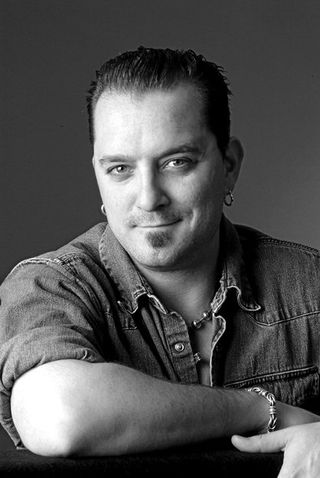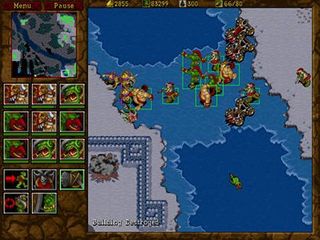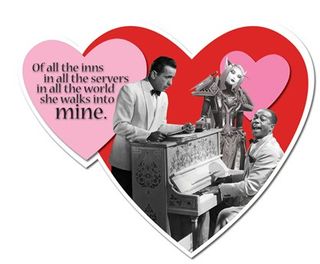The history of Warcraft
INTERVIEW: Blizzard's loremaster gives a behind-the-scenes glimpse of the shaping of Azeroth
Warcraft is now 15 years old, and few have been more instrumental in its development than Chris Metzen. Starting on the original game as an animator, he moved over to writing and design with Warcraft II and has been responsible for expanding the story and lore since Blizzard decided to turn its real-time strategy game into a massively multiplayer epic. He’s now Blizzard’s vice president of creative development. We spoke to him about the lasting appeal of the Warcraft world, and some of the story choices Blizzard have made over the past 15 years.

Above: Chris Metzen
When did you begin telling stories?
I spent a lot of my younger years playing Dungeons & Dragons. There’s something really special about incorporated storytelling, when you have a bunch of people around a table all engaging with each other. The imagination is there, and you’re running with a narration organically, throwing in decisions off the cuff. I’ve always felt there’s a kind of magic about that. I got hired at Blizzard about 16 years ago when they were making Warcraft.

When they were thinking about doing a sequel, even though I was an animator at the time, all I really wanted to do was make stuff up, you know? To run with a few ideas from the first game. So they plugged me in as a writer/designer on Warcraft II and I just hit the ground running. I started creating clans and places and drawing maps and just had a blast. The ideas just got kicked off from there. I just tried to take everything from Warcraft I and explode it out into the world.
What do you think it is about the universe that people connect to?
It’s hard to say, because there are so many cool fantasy settings out there. In terms of its DNA, I don’t know that Warcraft is all that different from a lot of other Tolkien fantasy. You’ve got elves and dwarfs and magic. But we toss in these crazy things like space crystals and steam rifles. It is broad enough that people can actually mesh with this world, but in my tired, old age I wonder sometimes if part of the magic formula is that we really just try to give this world a lot of heart. That seems a little cheesy, but it’s part of the X-factor for me. We try to interject as much drama as we can.
Sign up to the 12DOVE Newsletter
Weekly digests, tales from the communities you love, and more

Does the story ever surprise you?
If there’s an element of surprise it usually hits me much later. For instance, I was just upstairs with the WoW team looking at the Frozen Throne, a location we made six years ago for Warcraft III – and in our Fall of the Lich King patch for WoW, we’re actually going to get to confront the Lich King there.

We’ve talked about it many times, but actually seeing it immediately took me back and made me think, ‘How did this idea get so much longevity?’ We’re able to tell the story of this rise and fall of the Lich King, once a noble prince. A seven or eight year storyline – that’s pretty good for a videogame! And to have people still invested in that idea and coming back to it – the fact that it’s finally coming full circle – there’s a really weird satisfaction in that.
What was your reaction the first time you heard that they wanted to make Warcraft into an MMO?
I was thrilled. A lot of us were playing EverQuest at the time. I wasn’t very high level, but I played it every day on my lunch break and had a blast. It was D&D in a virtual environment, where you could run around with your friends in a new frontier. I thought that having the world of Warcraft in that kind of game environment was a very organic decision. We had no idea how complex that undertaking would be, many years later, but I was thrilled. Taking the narrative we had developed for the Warcraft series, and building a living breathing world where they get to see these kingdoms and histories rendered in such a deeper way, was one of the greatest experiences of my life.

Once we were able to start really digging it out, it led to a creativity explosion from all of us. Just a totally different type of game to design and conceptualize. It was a tremendous amount of fun. It was far beyond the level of storytelling we had been able to hit before also, and that was very rewarding. All these characters and cultures, and how they interrelated, and their histories, and visual identities. It was just this meta-story of this nation that rises and falls. It was just a tremendous opportunity, and it’s been very rewarding to see the player community respond to it all as well. I can’t tell you how cool it’s been.
Most Popular



